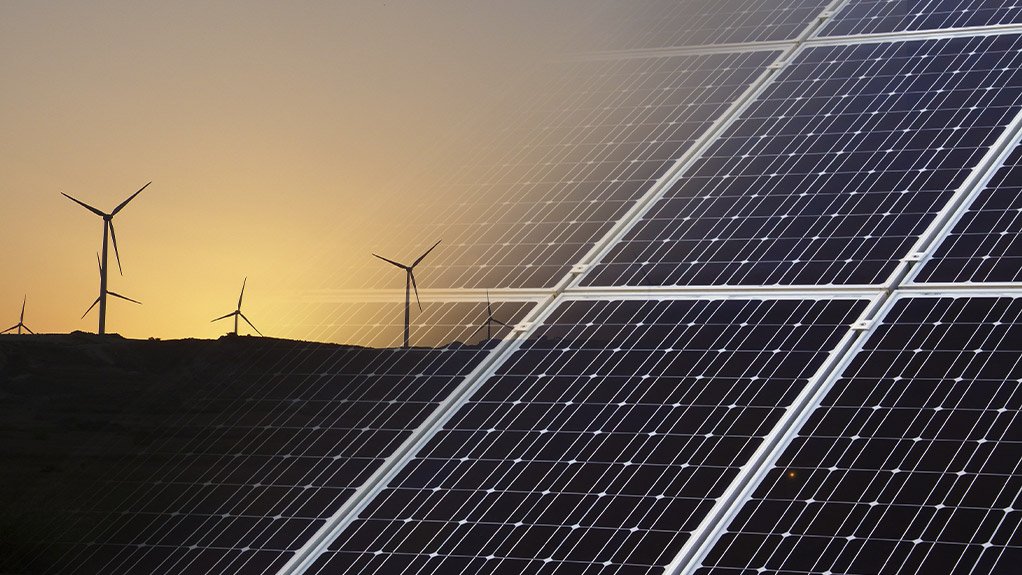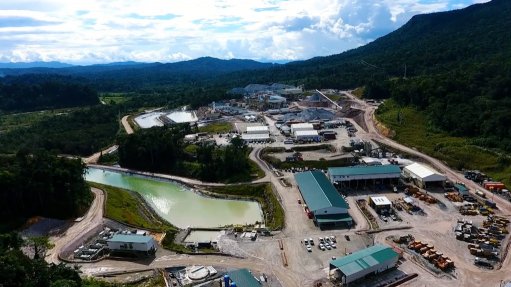Microgeneration, the future of green stable power


TAKING THE POWER BACK African mines are investing in on-site standalone or microgrid hybrid solutions
Amid growing interest in the adoption of hybrid energy solutions and South African mines aiming to invest in on-site standalone or microgrid hybrid solutions, engineering services consulting firm WSP suggests that microgeneration and hybrid solutions are the future for local industries and mines.
The confluence of unreliable grid-power, growing global pressure for mines to include renewable power generation in their decarbonisation strategies and opportunities arising from recent legislative developments, have led to WSP’s assisting mines with self-generation, says WSP Africa power director Dinesh Buldoo.
Microgeneration projects using on-site renewable energy may be in their infancy locally, but the trend towards their uptake is growing quickly, he says.
Until now, mines have traditionally relied on fossil-based fuel sources – particularly diesel or coal. In addition to high costs and the environmental impacts associated with diesel technology in some African countries, diesel fuel is not always easily available, which can severely impact on production if there are any delays.
“Reliance on diesel can also have a significant influence on the mine’s ability to manage operational expenditure costs, owing to fluctuations in fuel prices.”
Renewable-energy resources, such as solar and wind, are cost effective, adds Buldoo. With constant advances, the cost of the technology, in terms of the upfront capital investment to build a solar or wind farm, is increasingly more affordable.
Mine sites are often situated in remote locations and using on-site microgeneration allows for renewable power plants to be deployed close to the source of demand. Consequently, the plants can also supply the mine at a locked-in price in the long term.
These microgeneration solutions are popular because of the increasing pressure on miners to address climate risk by reducing carbon emissions and their impact on the environment, as well as from stakeholders to increase their social dividends through reinvestment.
According to research by management consulting firm McKinsey & Company, the global mining industry will need to reduce direct carbon dioxide emissions to zero to achieve the 1.5 ºC climate change target by 2050. This is also in a bid to move towards zero-carbon mining in the future.
“We are in an advantageous position, as the expertise to design and build standalone or microgrid hybrid power solutions exists in the country. There are different business models evolving, including mines that are becoming self-generating, where a mine funds, builds and operates a renewable plant on site. Another growing model is self-generating mines that also are powering local communities,” Buldoo says.
There are very successful microgrid power generation projects in remote locations that incorporate renewable energy as alternative sources, he comments.
One such example was where WSP acted as the technical adviseron the renewable-energy project that took Robben Island off the grid and, together with other examples, it can be used to make the business case for mining operations, Buldoo says.
Two models that hold potential for South African industries, including mining, are net metering, where mines can sell any excess capacity generated by the renewable plant into the local grid, and the creation of industrial pools, where a group of mines enter a long-term power purchase agreement and collectively fund, build and operate a shared power plant.
Government should enable mining companies to sell excess power capacity back into the grid. Essentially, legislation and policies need to be conscripted to help the alternative energy sector grow and overcome upfront capital costs on individual projects in favour of long-term gains, Buldoo concludes.
Comments
Announcements
What's On
Subscribe to improve your user experience...
Option 1 (equivalent of R125 a month):
Receive a weekly copy of Creamer Media's Engineering News & Mining Weekly magazine
(print copy for those in South Africa and e-magazine for those outside of South Africa)
Receive daily email newsletters
Access to full search results
Access archive of magazine back copies
Access to Projects in Progress
Access to ONE Research Report of your choice in PDF format
Option 2 (equivalent of R375 a month):
All benefits from Option 1
PLUS
Access to Creamer Media's Research Channel Africa for ALL Research Reports, in PDF format, on various industrial and mining sectors
including Electricity; Water; Energy Transition; Hydrogen; Roads, Rail and Ports; Coal; Gold; Platinum; Battery Metals; etc.
Already a subscriber?
Forgotten your password?
Receive weekly copy of Creamer Media's Engineering News & Mining Weekly magazine (print copy for those in South Africa and e-magazine for those outside of South Africa)
➕
Recieve daily email newsletters
➕
Access to full search results
➕
Access archive of magazine back copies
➕
Access to Projects in Progress
➕
Access to ONE Research Report of your choice in PDF format
RESEARCH CHANNEL AFRICA
R4500 (equivalent of R375 a month)
SUBSCRIBEAll benefits from Option 1
➕
Access to Creamer Media's Research Channel Africa for ALL Research Reports on various industrial and mining sectors, in PDF format, including on:
Electricity
➕
Water
➕
Energy Transition
➕
Hydrogen
➕
Roads, Rail and Ports
➕
Coal
➕
Gold
➕
Platinum
➕
Battery Metals
➕
etc.
Receive all benefits from Option 1 or Option 2 delivered to numerous people at your company
➕
Multiple User names and Passwords for simultaneous log-ins
➕
Intranet integration access to all in your organisation



















